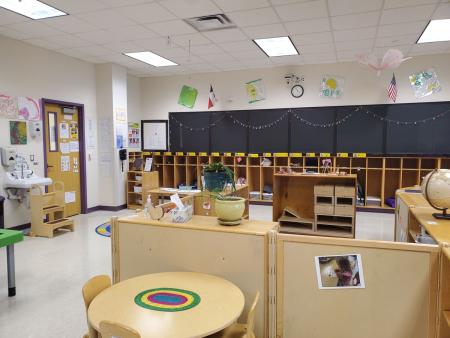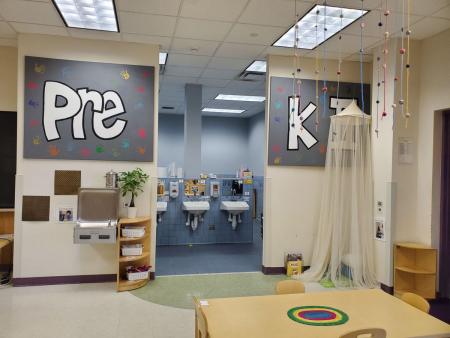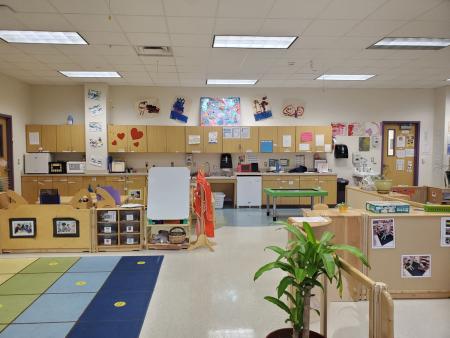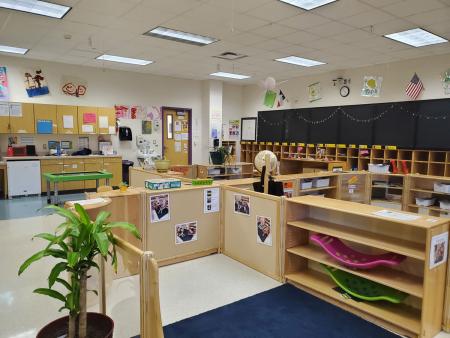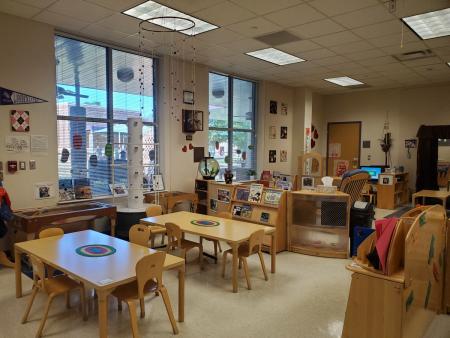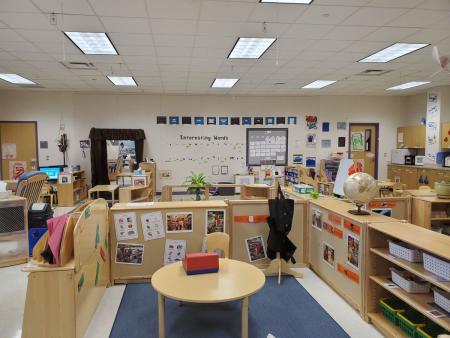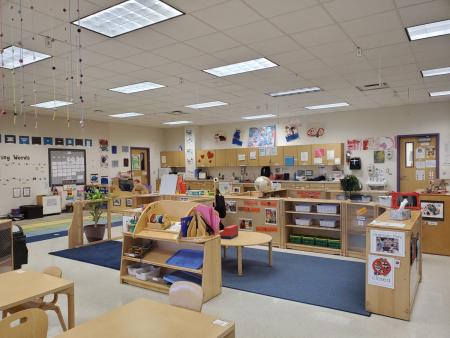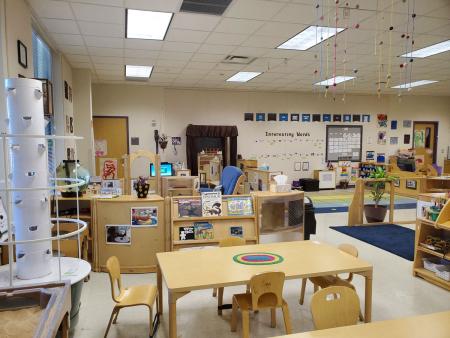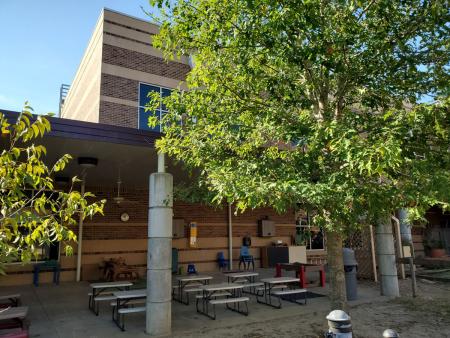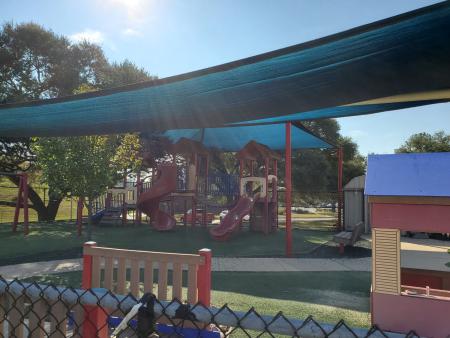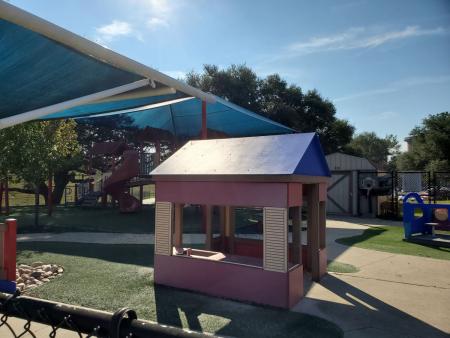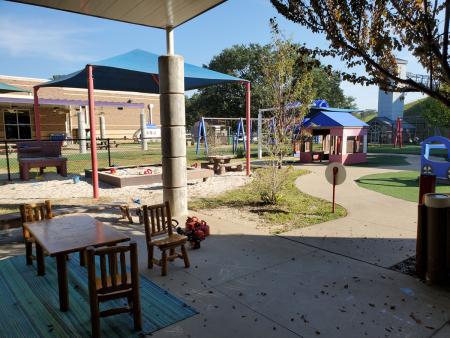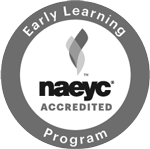Serving 20 children between the ages of four and five years, the curriculum of expanded "learning centers" is geared to meet the cognitive, physical and social-emotional needs of this age group. Children continue to build the foundations necessary to learn to read and write as well as developing math and reasoning skills.
Children are cared for by a lead teacher, assistant teacher and our student teaching assistants.
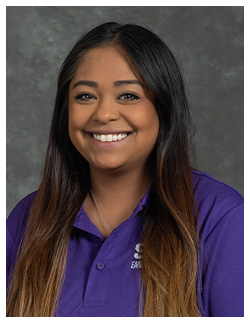
Ms. Jasmine, interim lead teacher
I have been with the Early Childhood Laboratory since August 2021. Born and raised in Nacogdoches, I attended Angelina College and am currently earning my master's degree in human development and family studies at SFA. My passion for teaching grows every day and I enjoy being around children and teaching them new and exciting things.
I'm a mother to three amazing kids and we enjoy crafting together! Most of my "free time" is spent doing freelance photography; I love capturing all the fun and exciting moments. My family and I love to travel and find new places together. I can't wait to continue to grow with the ECHL and see all the amazing things we can do together! Go Jacks!
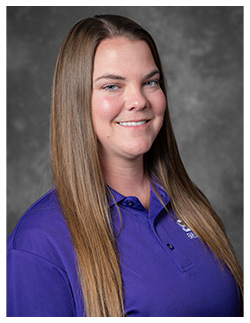
Ms. Chelsea, assistant teacher
Growing up, my dad owned a chain of early learning centers in the Fort Worth area, so I have always been involved with education. This led me to realize working with children is what I wanted to do. I attended college online at the Childcare Education Institute to earn Child Development Associate and Texas Director credentials. I am continuing to take classes to keep current with my degrees.
My favorite thing to do is hanging out with my family, friends and our animals. We love going to the lake, being outdoors and attending all kinds of sporting events. Basically, we don't like to sit at home.
Activities and development
Early Childhood Laboratory classrooms follow the Constructivist Theory approach. Our teachers develop outdoor lesson plans to correlate with weekly lesson plans that reinforce indoor learning and structure playtime to optimize learning. Using curriculum and assessments for guidance, design of the learning centers is based on the learning needs of each individual child.
In the Pre-K II classroom, we use a project approach to learning:
- Topic investigation
- Field work: Observation, exploration and predictions of new understandings
- Culminating and debriefing events: Display of findings and presentations
Children utilize math boxes and writing boxes to further develop their emerging skills. Learning centers allow children to work cooperatively in small and large group activities. "Rug-time" group experiences include a morning meeting, stories and music.
Daily schedule
| Time | Activity |
|---|---|
| 7:10 to 8:10 a.m. | Arrival and sign in, limited learning centers |
| 8:10 to 8:15 a.m. | Clean up |
| 8:15 to 8:30 a.m. | Read aloud |
| 8:30 to 9:30 a.m. | Snack, outdoor learning centers and play |
| 9:30 to 9:45 a.m. | Wash hands, transition, prepare for morning meeting |
| 9:45 to 10:05 a.m. | Morning meeting, preview new centers |
| 10:05 to 11 a.m. | Learning centers |
| 11 to 11:15 a.m. | Reading workshop, project work |
| 11:30 to 11:40 a.m. | Lunch |
| 11:45 to Noon | Naptime story, lights out |
| Noon to 1:30 p.m. | Naptime, quiet time |
| 1:30 to 2 p.m. | Quiet wake up, reading |
| 2 to 2:20 p.m. | Snack |
| 2:30 to 3 p.m. |
Mondays and Wednesdays: Math Boxes |
| 3 to 3:15 p.m. | Review calendar |
| 3:15 to 4 p.m. | Outside learning centers and play |
| 4 to 4:15 p.m. | Read aloud |
| 4:15 to 5 p.m. | Learning centers |
| 5 to 5:20 p.m. | Music, limited centers, departure |
Stocking their cubby
Here's a quick checklist of items to keep in your child's classroom cubby:
- Lovey (small comfort item)
- Two to three sets of season-appropriate clothing
We provide naptime items (cot, pillow and blanket), toothbrush and water bottle.
Toys must stay at home. Once a month, your Pre-K II child will have their own "share day" that allows them to bring an item from home and share it with their classmates. The teachers will communicate the calendar and all appropriate guidelines.
New families:
Bring three to four photos of family members for your child's scrapbook collage page.
 Axe ’Em, Jacks!
Axe ’Em, Jacks!
